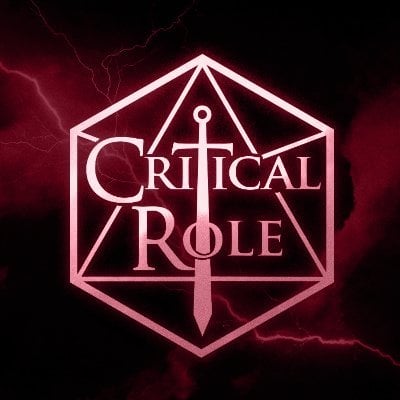- cross-posted to:
- dnd@lemmy.world
- cross-posted to:
- dnd@lemmy.world
Tal’dorei Campaign Setting Reborn is now available digitally on D&D Beyond. This is huge news, not just for Critical Role fans, but for any third-party publisher who writes with Dungeons & Dragons in mind. For years, D&D Beyond has had agreements with Wizards of the Coast to offer digital, interactive versions of select Dungeons & Dragons guides and sourcebooks. Opening that up to third-party creators, even on an experimental scale, could be huge for the third-party market.
Right now, there are three main ways that a third-party Dungeons & Dragons writer can publish their work. The first is independent publishing, where an individual storefront is established for the work either by the author themselves, or by a third-party press like Green Ronin or Kobold Press. Second, is publishing the work through a general third-party site like itch.io or DriveThruRPG. These two methods work must use a licensing agreement—typically the Open Gaming License or the contemporary Creative Commons license—which will allow authors to use parts of D&D’s Systems Reference Document to inform their work. However in both cases no royalties are paid to Wizards of the Coast.
The third way is through the Dungeon Master’s Guild. While the DMs Guild is owned by the same folks who own DriveThruRPG (and Roll20), the DMs Guild has specific licensing agreements with Wizards of the Coast that allow sellers access to more than just the SRD to use in their work. This comes with strings attached—including the fact that a chunk of any profits made are sent to WotC— but it is a very popular option because of the additional IP access besides the SRD, the built-in market, and the advertising options available to sellers.
What it means then, that Wizards of the Coast is seemingly starting to open up D&D Beyond to third party content isn’t entirely clear. Right now, there’s no obvious submission form and no section for ‘Third Party” content despite the tag attached to the Tal’dorei book, or the invite might only be offered to specific third-party groups. It’d make sense that if Beyond is being opened up in a limited capacity, someone as massively intrinsically successful to D&D as a brand like Critical Role comes first. Although there has been no information given about this release, the license used, or how the money will be distributed, it’s hard to exactly say whether or not Wizards of the Coast receives a good chunk of change out of its arrival on Beyond. At the DMs Guild, royalties are split 50/50, half going to creators, and half divided between Wizards of the Coast and DMs Guild in a percentage split that is not obviously disclosed on the DMs Guild site.
Regardless, it seems clear that this is another effort by the company at large to exert control and monetarily benefit from fan content, even if they do so in a way that somewhat helps and benefits third-party creators. Already, a few online D&D fans are annoyed that they will have to pay again for a digital version of a product that they already own at full price physically, rather than offering a discounted or even credited access to the campaign setting.
Until either Darrington Press—Critical Role’s publishing arm—or Wizards of the Coast definitively discuss what the future of third-party content on Beyond will look like beyond the Tal’dorei book, it’s hard to infer the effect that this release might have for third-party publishers. D&D Beyond is an incredible resource to the Dungeons & Dragons player community, but if it becomes yet another part of the monopoly that Wizards of the Coast is hoping to establish in the TTRPG ecosystem, it probably won’t be as good for creators as it seems on the surface.
Wizards of the Coast had no additional comments to add at this time, pointing io9 to the landing page for Tal’dorei Reborn. io9 has reached out to Darrington Press for comment.
What it means then, that Wizards of the Coast is seemingly starting to open up D&D Beyond to third party content isn’t entirely clear. Right now, there’s no obvious submission form and no section for 'Third Party" content…
Don’t get excited. Wizards is not opening up D&D Beyond to third-party content. They are licensing content from Critical Role, the largest actual play brand by far, with an established relationship with Wizards. This is a specific deal for a specific book.
Putting content on D&D Beyond takes an enormous amount of manual effort and QA. While some publishers would invest that level of effort themselves, they will probably never get the opportunity.
And no D&D Beyond competitor that does allow third-party content can ever really succeed in that space because they will never have content from Wizards. Case in point: D&D Beyond doesn’t have an API, which is almost certainly a business decision, not a technical one—probably to avoid this scenario entirely. Even if Wizards were to somehow license their content, the terms would be so onerous that it would be impossible to survive, let alone make a profit.
Regardless, it seems clear that this is another effort by the company at large to exert control and monetarily benefit from fan content
Yeah 😭
I love 5e to the extent that I often probably come across as a WotC shill but D&D Beyond, I’ll never be happy about.
You would think with the upcoming Daggerheart release WotCaSoH would be distancing/punishing Darlington Press trying to get ahead of the competition. Alas I supposed they are going the opposite way and milking what they can while they can. Let’s see how is shakes out 5 years from now.
It’s business, not personal. They’re all there to make money. Wizards is simply making hay while the sun shines.
As a brand, there’s zero benefit to alienating Critical Role fans, who are broadly speaking still very invested in 5E, if not D&D as a brand.



